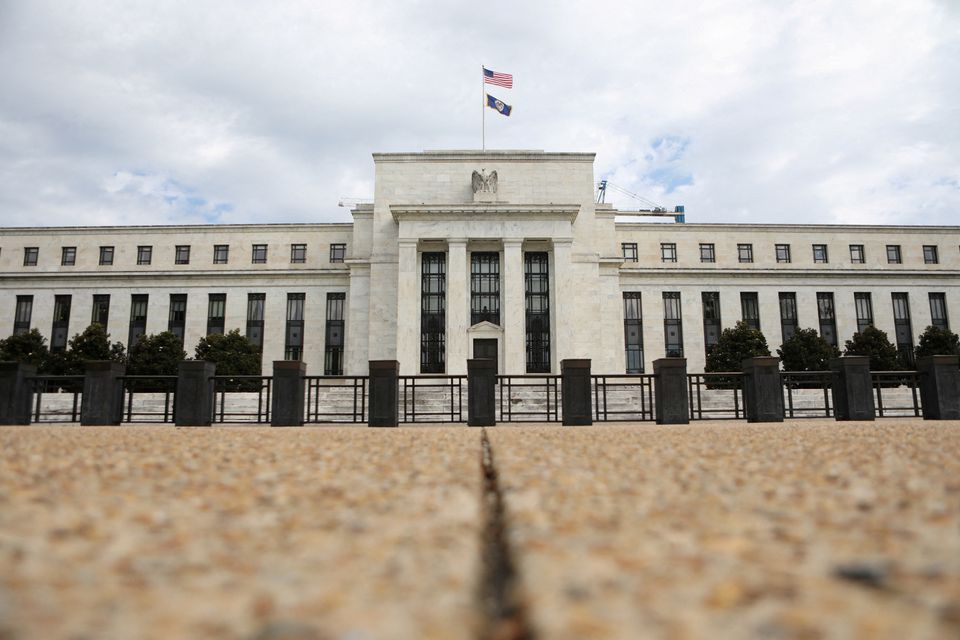In the month since Federal Reserve Chair Jerome Powell laid down a hard line on inflation, stocks have suffered double-digit losses, chasms have opened in global currency markets, and yields on the safest U.S. government debt have surged to their highest levels since the dark days of the financial crisis nearly a decade and a half ago.
U.S. central bank officials have been clear, however, just as Powell was in his remarks at the Jackson Hole economic conference in Wyoming and following the central bank's policy meeting last week: There's no rescue coming.
If the long-touted "Fed put" - a perceived tendency to run to the aid of financial markets - isn't dead, it has been put in deep hibernation, with U.S. officials making clear in recent days they are looking beyond both the sea of red on Wall Street and the avalanche of concern overseas that the U.S. central bank may be pushing the world to the brink of recession.
For the usually dovish Chicago Fed President Charles Evans, it was a "sobering assessment" of the breadth and persistence of high inflation that led him to join the consensus that U.S. interest rates will need to continue rising aggressively. For the hawkish St. Louis Fed President James Bullard, it is the potential for "chaos" if the Fed ignores its 2% inflation target that is outweighing concern about any immediate risks from the Fed's aggressive tightening.
Across the Fed's spectrum of opinion the reasons may vary, but the conclusion is the same. Higher interest rates are coming, and they are likely to remain in place for a long time.
"What we've heard from the Fed is simply not wanting to allow any dovish opening in their communications until financial conditions have hit much tighter levels and there's compelling evidence inflation is going to come down," said Matthew Luzzetti, chief U.S. economist at Deutsche Bank.
Despite volatility across global markets and warnings from international officials about the impact of U.S. monetary policy on the rest of the world, Fed officials "are reluctant, and I think rightly so, to say they are either worried or concerned, or that this is impacting policy," Luzzetti said.
As if to emphasize the point, the S&P 500 index(.SPX) on Tuesday hit a fresh nearly two-year low in a bear market traders are pinning squarely on the Fed. The index has fallen roughly 14% in the nearly five weeks since Powell spoke in Wyoming, while the yield on the 2-year U.S. Treasury note has climbed from 3.3% to around 4.2%.
"The Fed put is off the table. If the economy doesn't roll over and die and unemployment doesn't take off, it becomes a financial market recession more than a Main Street recession," said Charles Lemonides, the founder of hedge fund ValueWorks LLC. "People are not losing their jobs, but investors are down 20% in any asset class that there is."
The Fed last week raised rates by three-quarters of a percentage point, the third consecutive hike of that size. The central bank's policy rate is now 3 percentage points higher than where it began the year, and policymakers have indicated it will climb another 1.25 percentage points by January in the fastest policy tightening in decades.
The aim is to cool inflation running at more than triple the Fed's 2% target by its preferred measure, and policymakers say they have no inclination to hold back on the rate increases until inflation is clearly trending down.
In other words, it won't be a cratering of stock markets that drives the Fed to a policy "pivot," but several months of data showing that the back of inflation has been broken.
Some analysts worry the Fed's policy decisions are now running ahead of its ability to evaluate the impact on the economy of the rate hikes that already have been delivered, and cite market stress and volatility as evidence it may have overstepped
"I don't like to base monetary policy on equities so much," Bullard said to an economic forum in London on Tuesday. "Equities are so volatile ... Part of it is a natural repricing of the value of some of these corporate entities and that would be the right response of the markets to the idea that we have higher interest rates."










